Seafood Education
Seafood for the Future has compiled some seafood-related resources to support your education and outreach efforts.
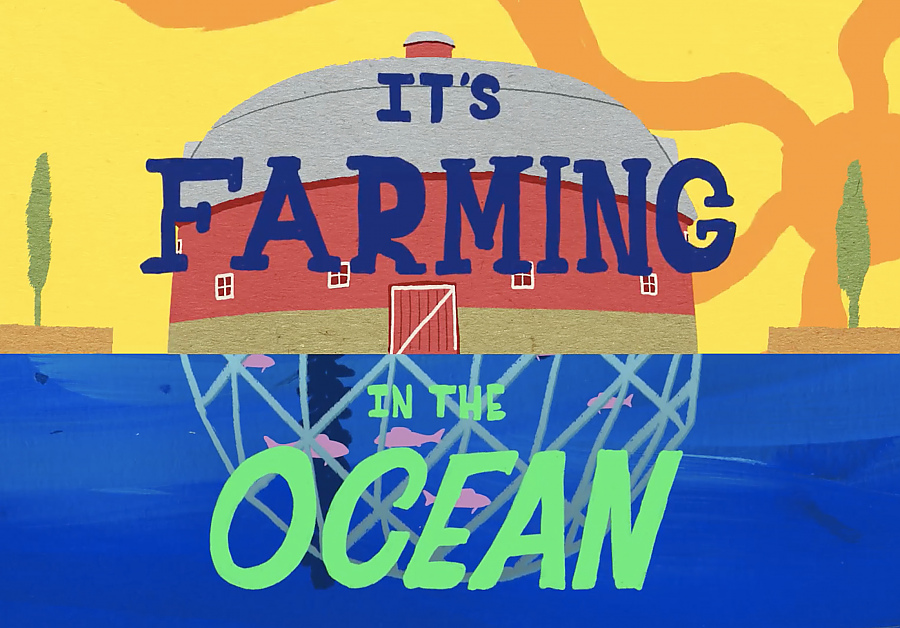
Designed by Grant Higa and Yuki Mori in collaboration with the Aquarium of the Pacific’s Seafood for the Future program Credit: © 2017 Designmatters at ArtCenter College of Design, designed by Grant Higa and Yuki Mori
Seafood for the Future has produced and collected a variety of resources to educate public and stakeholder audiences about responsible seafood and its role in a more nutritious, sustainable, equitable, and resilient food supply. We’ve compiled some of the ‘greatest hits’ in a series of topical toolkits to help make selection of materials easier. We invite you to leverage all of these resources to learn more and educate your audiences and responsible seafood.
Check out our Education Resource Spreadsheet for a full list of education resources. Filter by type of resource including video, fact sheet, story map, and more. Also, explore videos about responsible seafood on our YouTube Channel.
If you are a teacher looking for lesson plans to use in your classroom, check out BRIDGE Ocean Education and PBS LearningMedia.
Explore university, K-12, industry training, and informal aquaculture education opportunities in the Aquaculture Education Opportunities Spreadsheet.
Seafood Education Toolkits
Select one of the topics below to skip to the toolkit of your choice. Each toolkit features resources in the form of videos, fact sheets, and more relating to a specific seafood topic. There is also a list of additional resources, including a list of peer reviewed literature and resources to help educators to build their own understanding of the issue. Please review credit information for each item carefully and attribute credit as appropriate when using and sharing these resources.
Seafood Education Toolkits
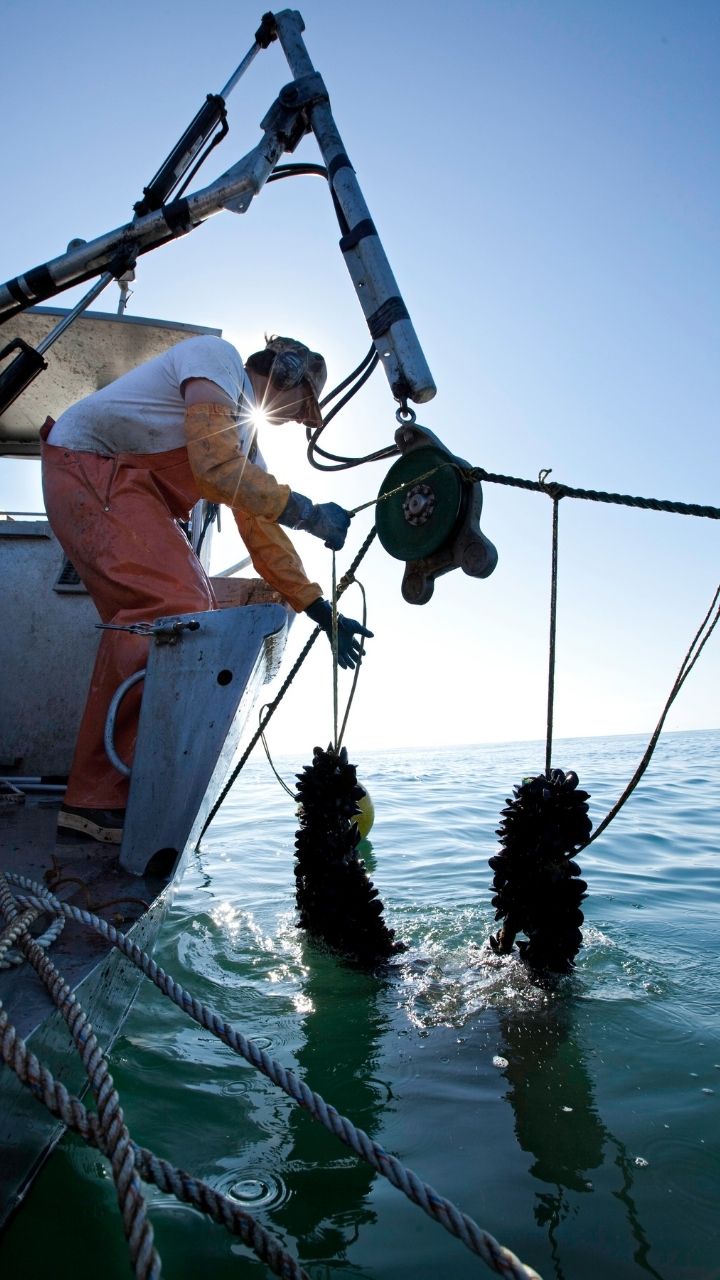
Credit: Santa Barbara Mariculture
Seafood & Food Systems
Responsibly produced seafood can play an important role in supporting a more sustainable and resilient food supply that makes healthy and nutritious food available to everyone.
-
Lectures & Discussions:
- Seafood’s Role in Our Food Systems and Nutrition | 52min | Aquarium of the Pacific, 2020
- Will Farmed Fish Save Our Oceans, Delight Our Palates, and Provide Healthy Food for All? | 1hr52min | Aquarium of the Pacific, April 2017
-
Videos:
- Perspectives on Marine Aquaculture in California and the U.S. | Video 28min | Aquarium of the Pacific
We are currently updating our media player. Please check back later for this content.
- Perspectives on Marine Aquaculture in California and the U.S. | Video 28min | Aquarium of the Pacific
-
Story Maps:
- Charting the Future of Seafood | University of California, Santa Barbara Conservation Aquaculture Research Team (CART)
- Farming in the Water | NOAA Fisheries
-
Additional Resources:
- Marine Aquaculture Is…(APP) | Aquarium of the Pacific & NOAA Sea Grant
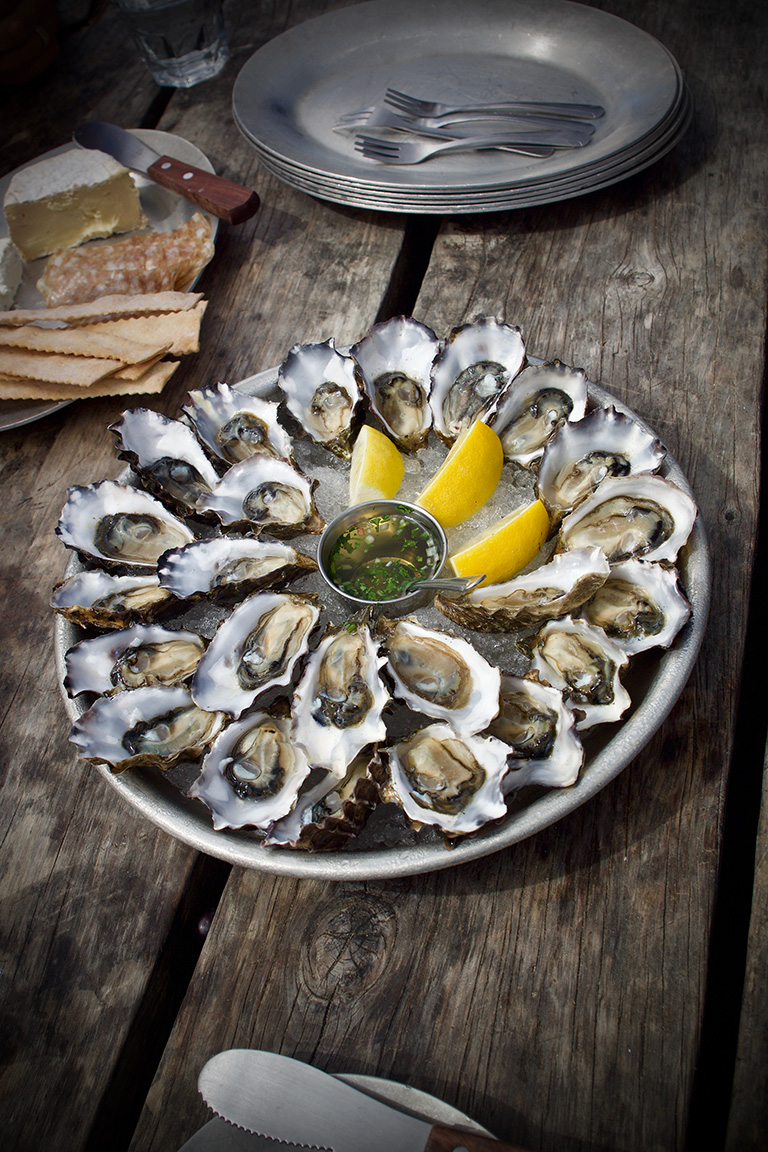
Credit: Seafood for the Future
Seafood & Nutrition
Responsible seafood is a nutritious source of healthy protein, fats, and essential vitamins and nutrients that provide a number of health benefits.
-
Lectures & Discussions:
- Seafood’s Role in Our Food Systems and Nutrition | 52min | Aquarium of the Pacific, 2020
- Seafood Nutrition Partnership’s State of the Science Symposium | Seafood Nutrition Partnership, September 2020
- Seafood - Good for You, Good for the Planet | 32min | Aquarium of the Pacific, January 2017
-
Fact Sheets:
- Seafood Advice for Consumers | Seafood Health Facts, NOAA Sea Grant
- Seafood Nutrition Partnership Fact Sheets | Seafood Nutrition Partnership
-
Additional Resources:
- Seafood and Human Health Messages (PDF) | Aquarium of the Pacific, 2017
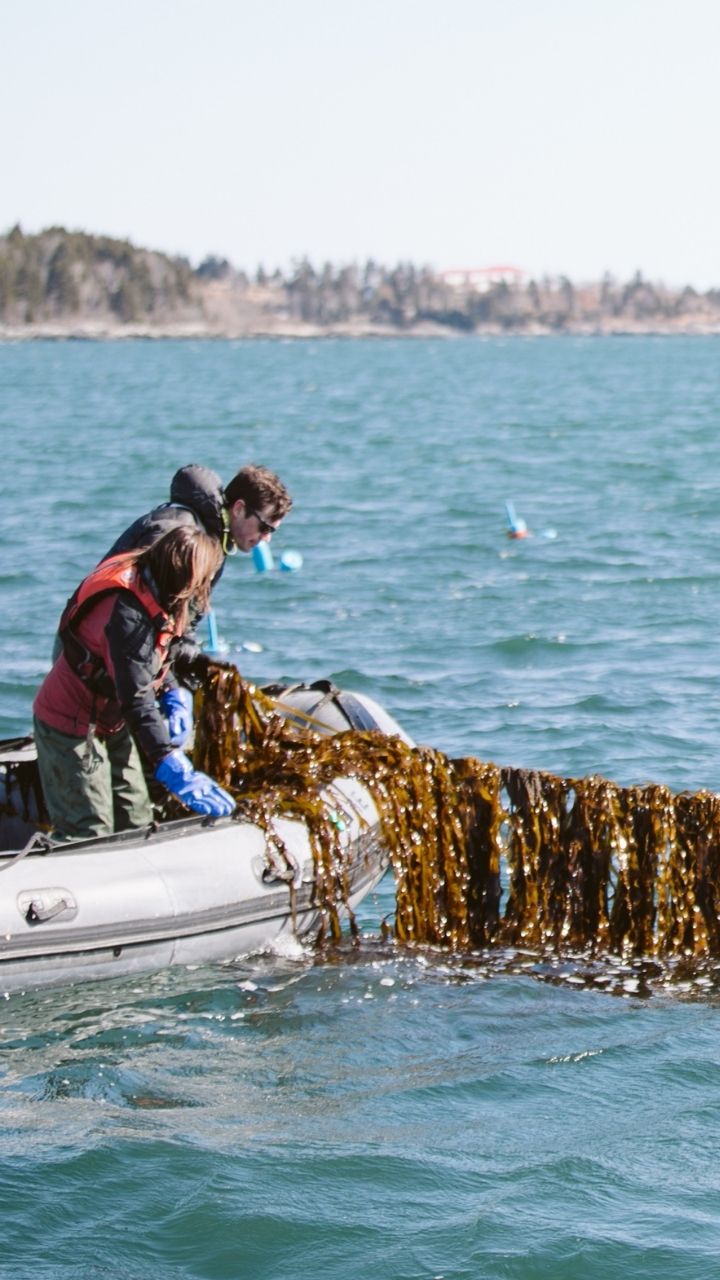
Credit: Ocean Approved
Seafood & Climate Change
Producing more food in the ocean (through responsible wild capture fisheries and seafood farming) can help build a food system that is more resilient to the impacts of climate change.
Environmental Resilience
-
Lectures & Discussions:
- Seafood Farming and Climate Change: Friend or Foe? | 53min | Aquarium of the Pacific, 2020
-
Videos:
- Ocean to Table | Aquarium of the Pacific/NOAA Sea Grant, 2018
- Location, Location, Location! Can Location Choices Prevent Seafood Farming Catastrophes? | 48min | Aquarium of the Pacific, 2020
- Will Farmed Fish Save Our Oceans, Delight Our Palates, and Provide Healthy Food for All? | 1hr25min | Aquarium of the Pacific, April 2017
-
Fact Sheets & Infographics:
- Climate Resilience and Aquaculture | NOAA Fisheries, 2021
Social & Economic Resilience
-
Lectures & Discussions:
- Farmed versus Wild: Will Farmed Seafood Push Fishers Out of Business? | 59min | Aquarium of the Pacific, 2020
-
Videos:
- Ocean to Table | Aquarium of the Pacific/NOAA Sea Grant, 2018
- Christie MacDonald Aquaculture and Jobs | 2min | Designmatters at ArtCenter College of Design, Designed by Christie MacDonald, 2017
-
Fact Sheets & Infographics:
- Aquaculture and Investment Opportunities | The Nature Conservancy, 2019
- Aquaculture Grows Resilient Coastal Communities | NOAA NOS National Centers for Coastal Ocean Science, 2017
- Smart Growth in Aquaculture | The Nature Conservancy, 2017
-
Additional Resources:
- The Aquaculture Opportunity | The Nature Conservancy, 2017
- Rethink Talks podcast series on resilience and global change | Stockholm Resilience Centre, 2020
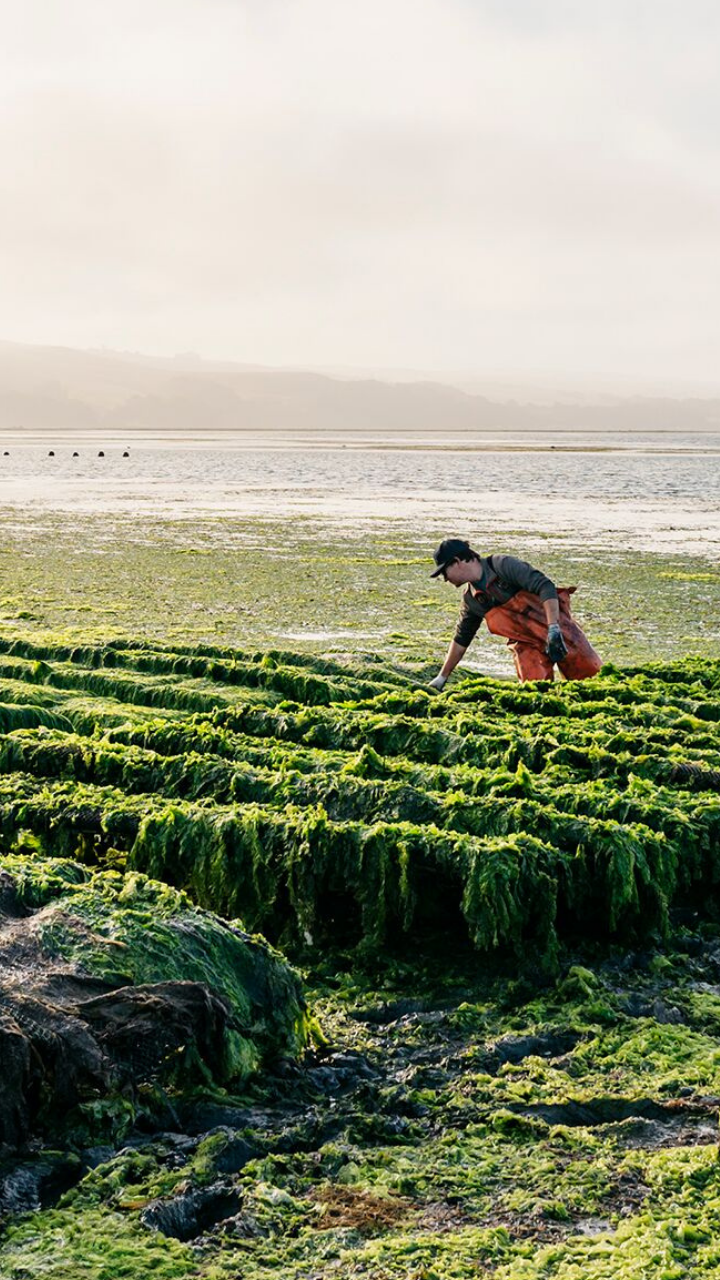
Credit: Remy Hale, Hog Island Oyster Co.
Seafood & Benefits to Nature
Some types of seafood farming can provide ecosystem services that benefit local wildlife and ecosystems.
-
Lectures & Discussions:
- Seafood Farming and Climate Change: Friend or Foe? | 53min | Aquarium of the Pacific, 2020
- Nutrient Bioextraction and Seaweed Aquaculture | 1hr3min | Aquarium of the Pacific, 2013
-
Videos:
- Aquaculture by Design Chesapeake Bay | Video Series | The Nature Conservancy, 2018
- Oysters support a healthy ocean | 27sec | Designmatters at ArtCenter College of Design, Designed by Grant Higa and Yuki Mori in collaboration with the Aquarium of the Pacific’s Seafood for the Future program, 2017
-
Fact Sheets:
- Aquaculture Provides Beneficial Ecosystem Services | NOAA Fisheries, 2021
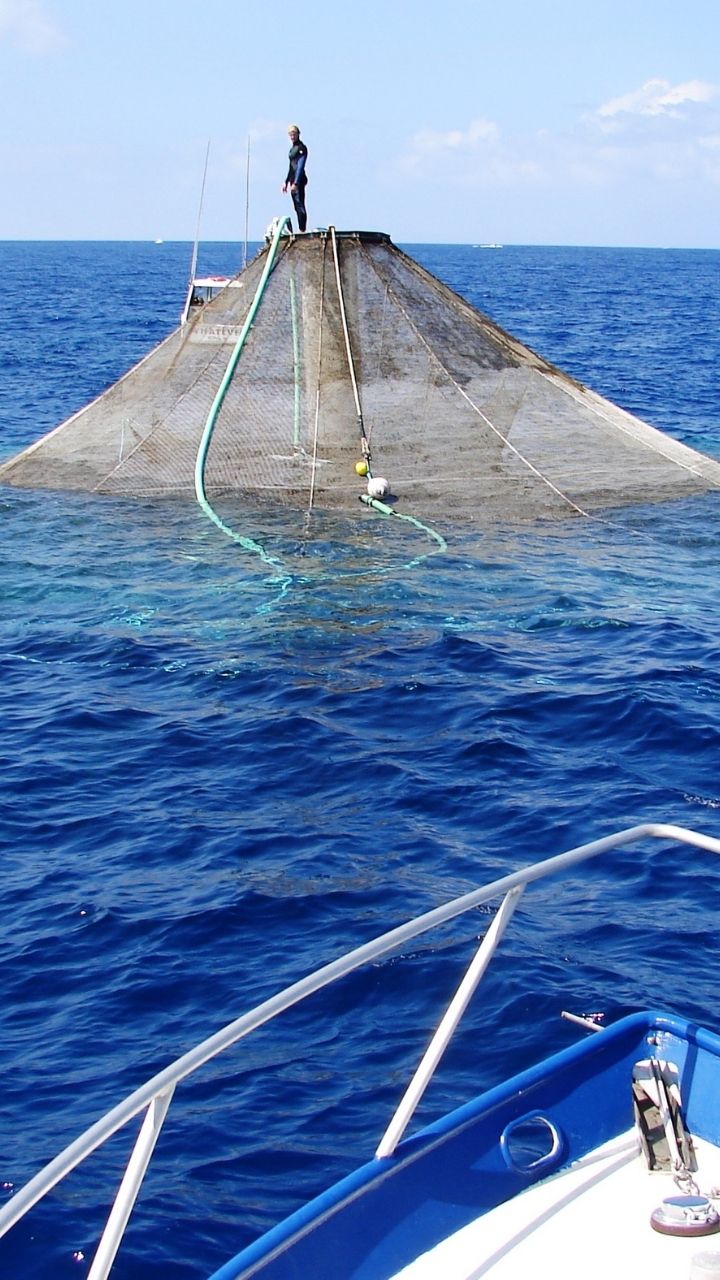
Credit: NOAA Fisheries
Seafood Technology & Innovation
Explore the technological and innovative advancements underway to ensure we can maximize the environmental, health, and economic benefits of seafood while minimizing the risks.
-
Lectures & Discussions:
- Location, Location, Location! Can Location Choices Prevent Seafood Farming Catastrophes? | 48min | Aquarium of the Pacific, 2020
- How Science and Innovation are Improving Seafood Farming | 52min | Aquarium of the Pacific, 2020
- The Future of GMO Salmon | 56min | Aquarium of the Pacific, 2020
- Aquaculture Innovations: Doing More With Less | 1hr17min | Aquarium of the Pacific, November 2018
-
Videos:
- Aquaculture by Design | The Nature Conservancy, 2018
-
Story Maps:
- Coastal Aquaculture Siting & Sustainability | NOAA National Centers for Coastal Ocean Service
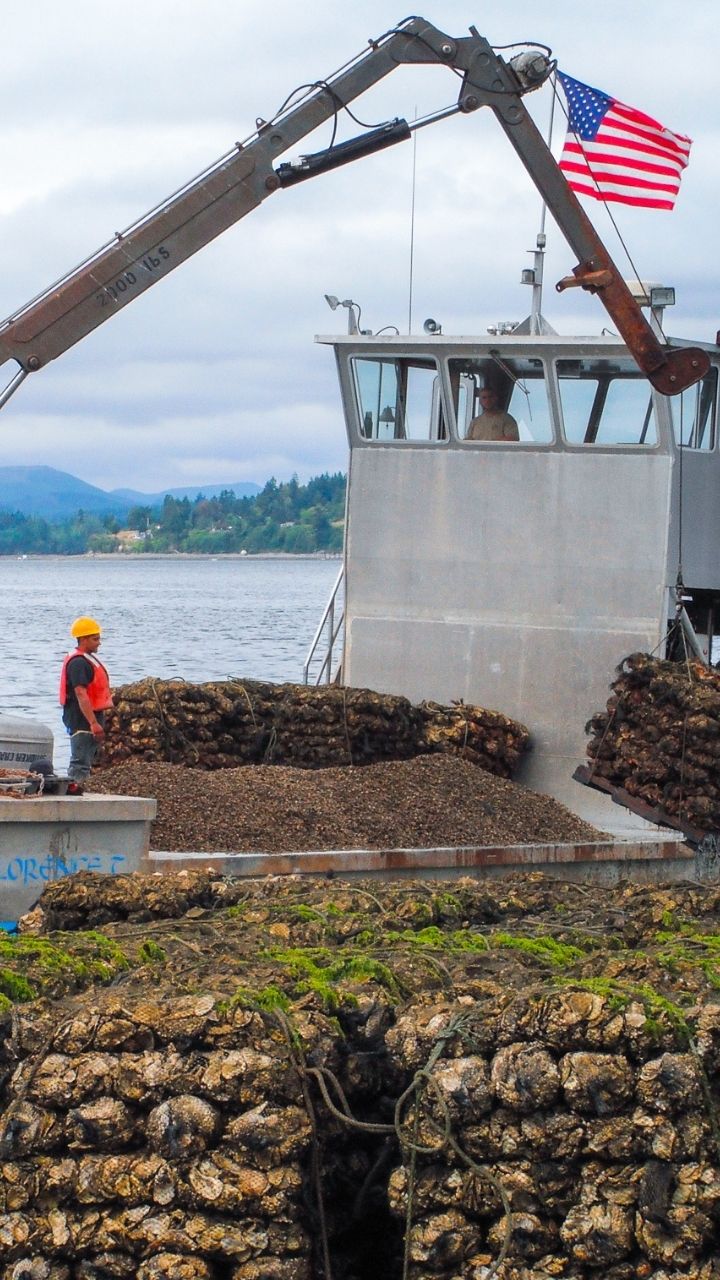
Credit: Taylor Shellfish
Seafood & Policy: United States
Responsible seafood production should follow laws and policies that are based on appropriate science and designed to maximize benefits to society and the environment while minimizing the risks.
-
Videos:
- Will U.S. Regulations Prevent a Seafood Farming Apocalypse? | 48min | Aquarium of the Pacific, 2020
-
Fact Sheets:
- Regulation of Marine Aquaculture | NOAA Fisheries, 2021
- Regulations for Marine Aquaculture in the United States (PDF) | Aquarium of the Pacific, 2020
- Regulatory Costs on U.S. Salmonid Farms | Western Regional Aquaculture Center, 2019
-
Story Maps:
- Overcoming Impediments to Shellfish Aquaculture | NOAA Sea Grant, 2019
